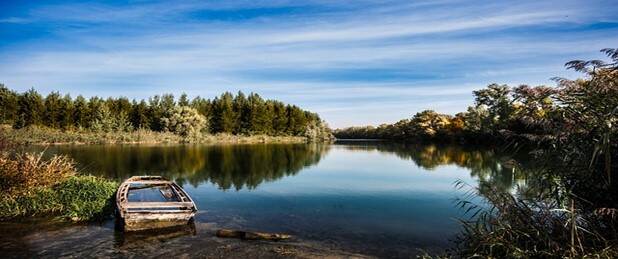Romanian NGOs call for a national program to filter waterways and river banks
In 2023, MaiMultVerde Association coordinated the project "For a Danube with Clean Banks" with the aim to identify concrete solutions to reduce the pollution of the Danube banks with household waste and to implement a pilot program to enhance the natural heritage of the Danube in Giurgiu County. The aim of the project is to empower local authorities by activating and civic involvement of the citizens of Giurgiu and the environs in advocacy actions to improve public sanitation services on the banks of the Danube.

Even if 80% of the Danube Ecotourism Trail (the first ecotourism trail on the Danube in Giurgiu County, to be developed in 2023 within the project "For a Clean Danube") is located in a protected area, real waste dumps have formed on the banks, mainly domestic, but also construction, industrial, etc.
In the second week of February 2024, 52 non-governmental organizations have requested the Ministry of the Environment, Waterways and Forestry in an open letter to create and implement a national program for riverbank management in order to clean up waterways and also to create an infrastructure for collecting waste from the nature.
The implementation of the program would be supervised by the National Environmental Protection Agency and carried out with support from local public administrations financed from the Environmental Fund.
Under its projects implemented over time, the MaiMultVerde Association has documented dozens of illegal landfills, especially on the Danube and its tributaries, and found that the local public authority legally responsible for sanitation does not have the capacity to do so. The Danube crosses 12 counties in Romania and 143 territorial administrative units. Most of them are in rural areas, and the banks of the river are not close to residential areas. Given the geography of the southern Danube basin and its floodplains, the banks are not considered the responsibility the territorial administrative units and no funds are allocated for their monitoring and sanitation.
At the same time, Romanian Waterways, the main nationwide authority for waterway management is not responsible for cleaning up waterways, and coarse particulate pollution is not included in the list of main pollutants. The waste remains concealed under water or abandoned on the banks and does not influence the score given to the state of the water, being practically ignored at the moment by those responsible for lifting them.
Local town halls, especially those in rural areas, do not have the physical and economic capacity to carry out projects to monitor and clean up riverbanks. At the moment, the phenomenon is completely ignored and in recent years it has grown to a great magnitude. The lack of waste collection infrastructure and the poor information of the population on waste management lead to waste storage on the unsupervised banks of the Danube. They must be used sustainably, for ecotourism, to bring benefits both to local communities and biodiversity, deeply affected by uncontrolled waste pollution.
The recommendations in the open letter were made within a working group initiated by MaiMultVerde in 2023 under the project "For a Danube with clean banks", through which the association arranged the first ecotourism route of nature and leisure in Giurgiu County, called Danube Ecoruta, covering 44 km.